Examining the Impact of Historical Policies on Health Disparities (Part 2 of 2)
March 20, 2025
12:00 PM - 1:00 PM (ET)
Webinar Details
Structural racism, embedded in unjust policies, has created and sustained poor social determinants of health thatcontribute to health disparities in the United States. These issues are deep, complex, and embedded in the history of our country. This can leave providers feeling overwhelmed as they work to address the residual effects that present as persistent chronic disease and premature death for many historically underrepresented groups. In this second of a two-part series, we will speak with experts in redlining, social determinants of health, and health disparities to understand how nurses can advocate for policy change to ameliorate health disparities and improve the health conditions for all people.
Outcomes:
- Identify at least one key area of health policy that can increase healthcare access.
- Verbalize key strategies to gain access to policy influencers.
- Verbalize at least one way to improve health outcomes and healthcare access at the local, state, and national levels.
This webinar is hosted by AACN’s Faculty Leadership Network.
Miss the first webinar in this series? View Part 1 webinar here.
Have questions prior to the webinar? Submit them here.
Note: Recording of the webinar will be available soon after the webinar airs. Visit AACN's On-Demand Webinars to watch.
Speakers
Speakers
 Felesia Bowen, PhD, DNP, PPCNP-BC, FAAN
Felesia Bowen, PhD, DNP, PPCNP-BC, FAAN
Professor and Associate Dean
University of Alabama at Birmingham School of Nursing
Dr. Felesia Bowen is Professor and Associate Dean at the University of Alabama at Birmingham School of Nursing. She is a decorated U.S. Army Nurse Corps veteran who earned her BSN at Tuskegee University, Master’s degree from Rutgers University, PhD from Columbia University, and DNP from Fairleigh Dickinson University, Teaneck, NJ. Dr. Bowen has devoted her career to improving health disparities and equity for children, their families, and the communities they live in. Dr. Bowen is known and respected for her unconventional and upstream approaches to addressing nursing workforce diversity. Dr. Bowen is a firm believer that student nurse diversity is necessary to decrease health disparities in minority and marginalized individuals. Dr. Bowen is a nationally certified primary care pediatric nurse practitioner and President-elect of the National Association of Pediatric Nurse Practitioners.
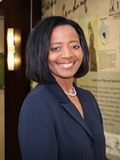 Loretta T. Lee, PhD, RN, CRNP, FNP-BC, CNE, FADLN, FNAP
Loretta T. Lee, PhD, RN, CRNP, FNP-BC, CNE, FADLN, FNAP
Professor and Department Vice Chair, Family, Community and Health Systems
University of Alabama Birmingham School of Nursing
Dr. Loretta T. Lee, Professor and Vice Chair of the Department of Family, Community and Health Systems at the University of Alabama at Birmingham School of Nursing, is a leading figure in health policy advocacy and the healthcare industry. Her fellowships with the American Academies of Practice, the Academy of Diversity Leaders in Nursing, and her National Black Nurses Association Inc. Health Policy Committee chairmanship demonstrate her dedication to interprofessional education and advocating for health policies that will transform healthcare. Dr. L ee’s academic journey, from earning her PhD in 2012 to her BSN in 1986, has been a testament to her commitment to nursing and healthcare. As a nurse scientist, her scholarship and research center on advancing transformative health equity for historically marginalized populations. Dr. Lee is a board-certified family nurse practitioner, a National League for Nursing Commission for Nursing Education Accreditation program evaluator, and an associate editor for the international peer-reviewed journal Ethnicity and Health.

Joy Deupree, PhD, MSN, RN, WHNP-BC, FAAN
Professor Nursing Acute, Chronic & Continuing Care
University of Alabama at Birmingham School of Nursing
Dr. Joy Deupree is a board-certified women’s health nurse practitioner, educator, researcher and policy advocate. Her work has focused on reducing health disparities in rural and underserved areas of the South. In 2006, Dr. Deupree co-founded the Nurse Practitioner Alliance of Alabama (NPAA). Her advocacy for all nurses to practice to the full extent of their training and education led her to dedicate more than 10 years to NPAA leadership positions strategizing with stakeholders in Alabama to reduce barriers to practice and improve access to care. As president of the NPAA from 2012 to 2013, she championed numerous legislative and regulatory efforts that exponentially increased practice opportunities for NPs to improve access to care for rural Alabamians. Dr. Deupree was a faculty member in the UAB School of Nursing from 1999 to 2019, where she held numerous leadership positions, and in 2019, she relocated to the University of South Carolina College of Nursing, where she was a professor and Associate Dean for Practice Innovation, Partnerships. In 2023, she returned to the UAB School of Nursing and was a professor and Director of Health Policy Partnerships in the Office of Clinical and Global Partnerships from 2023 to 2024.
Lorna Finnegan, PhD, RN, FNP, FAAN
Dean and Professor
Loyola University Chicago
Lorna Finnegan joined Loyola University Chicago in 2019 as Professor and Dean of the Marcella Niehoff School of Nursing. She brings extensive experience in academic research, teaching, clinical practice, and leadership to her role. Dr. Finnegan earned her BSN, MS, and PhD from the University of Illinois Chicago (UIC) College of Nursing. Before joining Loyola, she held leadership positions at UIC, including Executive Associate Dean and Department Head. Earlier in her career, she served as the Founding Director of the Family Nurse Practitioner Program at Saint Xavier University in Chicago. She is also the past president of the National Organization of Nurse Practitioner Faculties, the leading organization dedicated to advancing quality nurse practitioner education. Her scholarship, clinical practice, and leadership focus on integrating big data analytics, strategic academic-practice partnerships, innovative teaching strategies, and policy-shaping leadership to enhance access to primary care and promote health equity among vulnerable and underserved populations. Dr. Finnegan has received National Institutes of Health funding for her research on symptom clusters in adults with multiple chronic illnesses and has been recognized with numerous awards for her contributions to teaching, research, and leadership. She has also served as a visiting scholar at universities in Thailand, South Africa, and South Korea.
Tags
Examining the Impact of Historical Policies on Health Disparities (Part 1 of 2)
February 27, 2025
12:00 PM - 1:00 PM (ET)
Presented by the Faculty Leadership Network
Webinar Details
Health disparities disproportionately impact individuals from historically underrepresented backgrounds and their communities. Institutional and structural racism undergird the conditions that perpetuate health disparities and make it easy to blame the affected for their poor health. Healthcare leaders and providers must understand the egregious, intentional, and unjust policies that have shaped the way for poor social determinants of health. The first of this two-part series serves as a primer to help providers understand the issue's complexity both across the nation and within their own communities.
Outcomes:
- Understand the etiology of redlining.
- Identify redlines within the communities they practice in.
- Explain how high prevalence health disparity issues in their community are connected to unjust policies.
- Develop strategies to incorporate the concept into their courses and curriculum.
Note: Recording of the webinar will be available soon after the webinar airs. Visit AACN's On-Demand Webinars to watch.
Speakers
Speakers
 Felesia Bowen, PhD, DNP, PPCNP-BC, FAAN
Felesia Bowen, PhD, DNP, PPCNP-BC, FAAN
Professor and Associate Dean
University of Alabama at Birmingham School of Nursing
Dr. Felesia Bowen is Professor and Associate Dean at the University of Alabama at Birmingham School of Nursing. She is a decorated U.S. Army Nurse Corps veteran who earned her BSN at Tuskegee University, Master’s degree from Rutgers University, PhD from Columbia University, and DNP from Fairleigh Dickinson University, Teaneck, NJ. Dr. Bowen has devoted her career to improving health disparities and equity for children, their families, and the communities they live in. Dr. Bowen is known and respected for her unconventional, and upstream approaches to addressing nursing workforce diversity. Dr. Bowen is a firm believer that student nurse diversity is necessary to decrease health disparities in minority and marginalized individuals. Dr. Bowen is a nationally certified primary care pediatric nurse practitioner and President-elect of the National Association of Pediatric Nurse Practitioners.
Tags
Disaster Ready: Preparing Nurses for Crisis Response
February 11, 2025
2:00 PM - 3:00 PM (ET)
Webinar Details
"Disaster Ready" explores the critical role of nurses in disaster management and the importance of comprehensive disaster nursing education. The webinar explores the current state of disaster preparedness, response, and recovery in nursing, focusing on education needs, workforce readiness, and community resiliency. The webinar addresses significant gaps in disaster nursing education and offers strategies to bridge the gap between theoretical knowledge and the practical application of the AACN Essentials, particularly Domain 3: Population Health, 3.6 Competency: Advance preparedness to protect population health during disasters and public health emergencies.
Outcomes:
- Understand the critical role of nurses in disaster management, including their multifaceted responsibilities in emergency preparation, response, and recovery.
- Recognize the value of Academic Service-Learning (AS-L) in enhancing disaster nursing education by integrating theoretical knowledge with practical community service experiences.
- Identify the key components of effective disaster nursing curricula, including active learning approaches, simulation-based training, and collaboration with community organizations, such as the American Red Cross.
Note: Recording of the webinar will be available soon after the webinar airs. Visit AACN's On-Demand Webinars to watch.
Speakers
Speakers
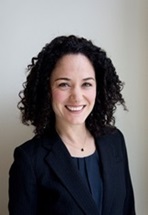 Shawna Sisler, PhD, MS, MA, MAPP, APRN, CPNP-PC, PMHS
Shawna Sisler, PhD, MS, MA, MAPP, APRN, CPNP-PC, PMHS
Assistant Professor (Clinical)
University of Utah
Dr. Shawna Sisler brings extensive expertise in population health, pediatrics, and mental health to her role in nursing education. Her academic background includes a PhD in Nursing Science from the University of Utah, an MS in Nursing from the University of California, San Francisco (UCSF), and additional Master's degrees in Applied Positive Psychology and Counseling from the University of Pennsylvania and Santa Clara University, respectively. As a passionate community advocate and changemaker, Dr. Sisler spearheads innovative approaches to Utah’s behavioral health integration and social determinants of mental health in rural and frontier communities. She is the Principal Investigator for the HRSA-funded Utah Rural Opioid Healthcare Consortium - Collaborative Care Model (UROHC-CCM) grant, which aims to reduce opioid usage and dependence in Carbon, Emery, and Wayne Counties - areas in east-central Utah with some of the highest rates of opioid-related deaths in the state. In this role, she directs research and clinical strategies, collaborates with rural community clinics, and manages the project's financial and administrative aspects. Additionally, Dr. Sisler co-leads redesign efforts in the population health vertical at the College of Nursing, contributing to the shift toward competency-based education. Dr. Sisler's commitment to innovative healthcare solutions and community advocacy extends beyond her academic work, as she serves as a long-time volunteer and Loaned Nurse Executive for the American Red Cross, working directly under the Chief Nurse on their Nursing and Health leadership team at the National Headquarters.
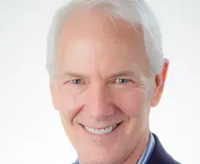
Richard MacIntyre, PhD, RN, FAAN
Professor
Samuel Merritt University
Dr. Richard MacIntyre is Professor and Director of the RN to BSN Program at Samuel Merritt University. He is also a board member at TriState College of Acupuncture in NYC, a member of the Advisory Council on Policy, STTI, and a member of the Nursing Council at Western Governors. He was a Robert Wood Johnson Executive Nurse fellow where he focused on innovative curricula, including standardized curricula for informatics.
Tags
Improving Care for Veterans and Military-Connected Patients: A Matter of National Security
October 24, 2024
2:00 PM - 3:00 PM (ET)
Webinar Details
Identifying veterans and military-connected families in healthcare settings is crucial for their well-being. By recognizing veterans and military family members and understanding their unique lifestyle and health challenges, providers can offer more effective, culturally competent care. This webinar will introduce practical tools for nurses and NP/APNs to address the comprehensive healthcare needs of veterans and military families.
This webinar aims to equip nurses and healthcare providers with tools to identify and effectively care for veterans and military-connected patients. It will introduce the "Have You Ever Served" series of pocketcards, designed to guide nurses and NPs and advanced practice nurses (NP/APNs) in providing culturally competent care to veterans and entire military families.
Outcomes:
- Describe the importance of identifying veterans and military-connected patients health needs.
- Introducing tools for culturally competent care.
- Addressing the unique health challenges faced by veterans and military families.
- Emphasizing the need for comprehensive, family-centered care approaches.
Note: Recording of the webinar will be available soon after the webinar airs. Visit AACN's On-Demand Webinars to watch.
Speakers
Speakers
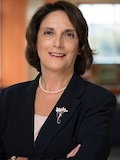
Rita F. D’AOust, PhD
Associate Professor; Director, DNP/PhD Program
Johns Hopkins University School of Nursing
Dr. Rita F. D'Aoust is an Associate Professor at the Johns Hopkins University School of Nursing and Director of the dual DNP/PhD program, with a joint appointment in the School of Medicine's Department of General Internal Medicine. As a military spouse and family member, Dr. D'Aoust has experienced military life from the sidelines. As a nurse practitioner, she has cared for veterans in community settings. These experiences have informed her significant contributions to educating nurses in veteran care. Dr. D'Aoust co-authored "Caring for Veterans and Their Families: A Guide for Nurses and Healthcare Professionals." She co-directed the Veterans Affairs Nursing Academy (VANA) and subsequent Veterans Affairs Nursing Academic Partnerships (VANAP) at the James A. Haley Veterans Hospital and University of South Florida. She is a member of the American Association of Nursing, Military/Veteran Expert Panel. Her innovative work includes developing the Veteran to Bachelor of Science Program, which recognizes prior learning through American Council of Education (ACE) transcript evaluation for military medics and corpsmen. She also created an online course, "Introduction to Military and Veteran Healthcare." Dr. D'Aoust's research focuses on the impact of military service on veteran health. She has studied novel therapies like Accelerated Resolution Therapy (ART) for treating PTSD in homeless veterans and those with Military Sexual Trauma. She has also researched fibromyalgia symptomology in community-dwelling women veterans. As a mentor, Dr. D'Aoust has guided numerous doctoral students on veteran policy issues, nurse practitioner roles in veteran care, and quality improvement initiatives in VA settings. Her contributions have been recognized with the Jonas Faculty Mentor Award and the Jonas Nursing and Veterans Healthcare Distinguished Faculty Award in 2021.

Catherine G. Ling, PhD
Associate Professor
Johns Hopkins University School of Nursing
Dr. Catherine Ling is a nurse scientist, practicing Family Nurse Practitioner (FNP), and certified nurse educator focusing on improving access to quality, primary care. She works to improve culturally competent care for military families and is actively involved in community focused interventions to improve wellness at a local and global level. She is also creating innovative, engaging strategies to prepare DNP students for advanced practice. She received her BSN from the University of Tennessee Knoxville, her MN from Emory University and her PhD from the Medical University of South Carolina. Dr. Ling is a Fellow in the American Association of Nurse Practitioners and the American Academy of Nursing. She is currently an Associate Professor and inaugural CNO of Service within the COMPASS Center at the Johns Hopkins University School of Nursing.

Alicia Gill Rossiter, DNP
Associate Professor
University of South Florida
Dr. Alicia Gill Rossiter is an Associate Professor at the University of South Florida College of Nursing and serves as Chief Officer of Military and Veteran Affairs and Director of the V-CARE Veteran to BSN Pathway. She is a Family Nurse Practitioner board certified in Pediatric Primary Care. Dr. Rossiter served in the U.S. Army Nurse Corps on active duty for four years which included two deployments - a combat deployment to Saudi Arabia during Operation Desert Shield/Desert Storm and a humanitarian mission to Honduras, Central America. She transferred into the U.S. Air Force Reserve in 1995 and served as an Individual Mobilization Augmentee until retiring in 2015. Her military experience is the impetus behind her research which includes women veterans and military sexual trauma, effects of parental military service on military-connected children, and transitioning needs of medics and corpsmen into the professional role of nursing. During her doctoral program, she was selected as a Bob Woodruff Jonas Veteran Healthcare Scholar. She was a member of the inaugural cohort of AAN Jonas Policy Scholars with the Military/Veteran Health Expert Panel. She was inducted as a Fellow in the American Association of Nurse Practitioners in 2014 and in the American Academy of Nursing in 2018 where she served as the Co-Chair and Chair of the Military/Veteran Health Expert Panel from 2018-2022. She recently co-authored her first book,?Caring for Veterans and their Families: A Guide for Nurses and other Healthcare Professionals.
Tags
Improving Care for Veterans and Military-Connected Patients: A Matter of National Security
October 24, 2024
2:00 PM - 3:00 PM (ET)
Webinar Details
Identifying veterans and military-connected families in healthcare settings is crucial for their well-being. By recognizing veterans and military family members and understanding their unique lifestyle and health challenges, providers can offer more effective, culturally competent care. This webinar will introduce practical tools for nurses and NP/APNs to address the comprehensive healthcare needs of veterans and military families.
This webinar aims to equip nurses and healthcare providers with tools to identify and effectively care for veterans and military-connected patients. It will introduce the "Have You Ever Served" series of pocketcards, designed to guide nurses and NPs and advanced practice nurses (NP/APNs) in providing culturally competent care to veterans and entire military families.
Outcomes:
- Describe the importance of identifying veterans and military-connected patients health needs.
- Introducing tools for culturally competent care.
- Addressing the unique health challenges faced by veterans and military families.
- Emphasizing the need for comprehensive, family-centered care approaches.
Note: Recording of the webinar will be available soon after the webinar airs. Visit AACN's On-Demand Webinars to watch.
Speakers
Speakers

Rita F. D’AOust, PhD
Associate Professor; Director, DNP/PhD Program
Johns Hopkins University School of Nursing
Dr. Rita F. D'Aoust is an Associate Professor at the Johns Hopkins University School of Nursing and Director of the dual DNP/PhD program, with a joint appointment in the School of Medicine's Department of General Internal Medicine. As a military spouse and family member, Dr. D'Aoust has experienced military life from the sidelines. As a nurse practitioner, she has cared for veterans in community settings. These experiences have informed her significant contributions to educating nurses in veteran care. Dr. D'Aoust co-authored "Caring for Veterans and Their Families: A Guide for Nurses and Healthcare Professionals." She co-directed the Veterans Affairs Nursing Academy (VANA) and subsequent Veterans Affairs Nursing Academic Partnerships (VANAP) at the James A. Haley Veterans Hospital and University of South Florida. She is a member of the American Association of Nursing, Military/Veteran Expert Panel. Her innovative work includes developing the Veteran to Bachelor of Science Program, which recognizes prior learning through American Council of Education (ACE) transcript evaluation for military medics and corpsmen. She also created an online course, "Introduction to Military and Veteran Healthcare." Dr. D'Aoust's research focuses on the impact of military service on veteran health. She has studied novel therapies like Accelerated Resolution Therapy (ART) for treating PTSD in homeless veterans and those with Military Sexual Trauma. She has also researched fibromyalgia symptomology in community-dwelling women veterans. As a mentor, Dr. D'Aoust has guided numerous doctoral students on veteran policy issues, nurse practitioner roles in veteran care, and quality improvement initiatives in VA settings. Her contributions have been recognized with the Jonas Faculty Mentor Award and the Jonas Nursing and Veterans Healthcare Distinguished Faculty Award in 2021.

Catherine G. Ling, PhD
Associate Professor
Johns Hopkins University School of Nursing
Dr. Catherine Ling is a nurse scientist, practicing Family Nurse Practitioner (FNP), and certified nurse educator focusing on improving access to quality, primary care. She works to improve culturally competent care for military families and is actively involved in community focused interventions to improve wellness at a local and global level. She is also creating innovative, engaging strategies to prepare DNP students for advanced practice. She received her BSN from the University of Tennessee Knoxville, her MN from Emory University and her PhD from the Medical University of South Carolina. Dr. Ling is a Fellow in the American Association of Nurse Practitioners and the American Academy of Nursing. She is currently an Associate Professor and inaugural CNO of Service within the COMPASS Center at the Johns Hopkins University School of Nursing.

Alicia Gill Rossiter, DNP
Associate Professor
University of South Florida
Dr. Alicia Gill Rossiter is an Associate Professor at the University of South Florida College of Nursing and serves as Chief Officer of Military and Veteran Affairs and Director of the V-CARE Veteran to BSN Pathway. She is a Family Nurse Practitioner board certified in Pediatric Primary Care. Dr. Rossiter served in the U.S. Army Nurse Corps on active duty for four years which included two deployments - a combat deployment to Saudi Arabia during Operation Desert Shield/Desert Storm and a humanitarian mission to Honduras, Central America. She transferred into the U.S. Air Force Reserve in 1995 and served as an Individual Mobilization Augmentee until retiring in 2015. Her military experience is the impetus behind her research which includes women veterans and military sexual trauma, effects of parental military service on military-connected children, and transitioning needs of medics and corpsmen into the professional role of nursing. During her doctoral program, she was selected as a Bob Woodruff Jonas Veteran Healthcare Scholar. She was a member of the inaugural cohort of AAN Jonas Policy Scholars with the Military/Veteran Health Expert Panel. She was inducted as a Fellow in the American Association of Nurse Practitioners in 2014 and in the American Academy of Nursing in 2018 where she served as the Co-Chair and Chair of the Military/Veteran Health Expert Panel from 2018-2022. She recently co-authored her first book,?Caring for Veterans and their Families: A Guide for Nurses and other Healthcare Professionals.
Tags
Unifying Caring Science and the AACN Essentials
October 02, 2024
2:00 PM - 3:00 PM (ET)
Webinar Details
This webinar aims to inform nursing education by offering an expanded perspective on the AACN Essentials through the integrative lens of Caring Science and the ANA Definition of Nursing. Building on Watson's seminal work in Caring Science and Human Caring Theory, this webinar will demonstrate how the 10 Caritas Processes® serve as a discipline-specific nursing paradigm that incorporates and transcends competencies.
Caring Science provides an ethical, humanistic, and heart-centered educational guide for the future of nursing. The webinar will include exemplars of academic-practice partnerships in Caring Science, that unify, redefine, and advance both nursing education and practice. It will demonstrate how this approach revolutionizes nursing curricula, creating a more holistic and compassionate foundation for the discipline. Furthermore, the presentation will champion a visionary partnership model between healthcare establishments and academic institutions, integrating the AACN Essentials within the broader context of Caring Science and the nursing discipline. This integration aims to elevate the standards of nursing education, preparing a new generation of nurses equipped with competence grounded in the discipline, and providing a deeper understanding of the caring, healing, and compassionate aspects of the profession.
Objectives:
- Critique the Caring Science Nursing paradigm in relation to Medical Science and the ANA's definition of Nursing, highlighting key differences and connections.
- Discover the integration of AACN Essentials and Caring Science in nursing education, examining their roles in curriculum development, and identifying common educational strategies across nursing schools.
- Explore practical applications of Caring Science and the 10 Caritas Processes® in healthcare institutions and nursing education, including their alignment with AACN Essentials
Note: Recording of the webinar will be available soon after the webinar airs. Visit AACN's On-Demand Webinars to watch .
Speakers
Speakers
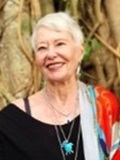
Jean Watson, PhD, RN, AHN-BC, FAAN, LL
Founder –Director
Watson Caring Science Institute
Dr. Jean Watson is known around the world for her Theory of Human Caring and advancement of Caring Science as disciplinary context for Nursing’s future. She is the Founder of the Non-profit, Watson Caring Science Institute and Distinguished Professor Dean Emerita University of Colorado Denver. She is the author, co-author, or editor of over 30 books on Caring Science and Unitary Caring. Her latest book is titled Metaphysics of Unitary Caring Science. A Cosmology of Love, (2025 pub. by Springer). Her work is used globally, promoting academic and clinical partnerships toward theory-guided caring science curriculum and professional Caritas Practice, Research, and Leadership. Watson is the recipient of numerous national and international awards and honors including 15 Honorary Doctorates; she is designated as a Living Legend by the American Academy of Nursing, its highest honor. View full bio.

Sara Horton-Deutsch, PhD, RN, FAAN, ANEF, SGAHN
University of San Francisco
Director of USF/Kaiser Permanente Partnership and Faculty Associate
Watson Caring Science Institute
Dr. Sarah Horton-Deutsch has led in academic and practice settings for over 30 years as an advanced practice psychiatric/mental health nurse, teacher/practitioner, consultant, program director, caring science endowed chair, coach, and academic/practice partnership director. In 2022, she was inducted into the Global American Holistic Nursing. She has contributed to evidence-informed knowledge development throughout her academic and practice career to ensure compassionate, safe, and quality care. As a reflective leader, she focuses on inward development to positively influence change. She has co-authored several books on Reflective Practice, Caring Science, and Caritas Coaching. She i s a Caritas Coach & Leader, Reiki Practitioner, and Healing Circle Facilitator. Through her journey, she has learned the necessity of connecting to one’s inner sources of wisdom, power, and healing, as well as the arts and humanities that once defined the discipline of nursing. She is passionate about facilitating critical, deep, and authentic connections that support regeneration, renewal, and the profession’s evolution. Her latest books, Visionary Leadership in Healthcare (2022) and Reflective Practice: Reimagining Ourselves, Reimagining Nursing (2024), were published through SIGMA, the former winning an AJN 1st place book of the year award in Leadership. She is currently a champion for the ANCC Essentials within the USF School of Nursing and Health Professions. She is co-director of the Caritas Leadership Program for the Watson Caring Science Institute.

Danny G. Willis, DNS, RN, PMHCNS-BC, FAAN
Dean and Professor
University of Rhode Island College of Nursing
Dr. Danny G. Willis serves as Dean of the University of Rhode Island College of Nursing. He Caritas® Leader Faculty. In his 20-year academic career, he has served as Dean at Saint Louis University Valentine School of Nursing, Associate Dean for Academic Affairs at the University of Wisconsin-Madison School of Nursing, and Department Chair at Boston College, Connell School of Nursing. He is a Fellow of the American Academy of Nursing and has chaired the Expert Panel on Theory-Guided Practice and is a member of the Expert Panel on Violence. His program of research and scholarship primarily focuses on wellbeing and healing in the aftermath of traumatic experiences. His work has been recognized with many awards, including the Eastern Nursing Research Society "Rising Star" Award, American Psychiatric Nurses Association Nancy Valentine "Leadership" Award, and R-level research funding as Principal Investigator from the National Institutes of Health (NIH). He has mentored undergraduate, masters, and PhD students from nursing, social work, child and human development, and counseling psychology. Dr. Willis has published widely in nursing and other health- related journals on qualitative research methods, foundations of the discipline, child maltreatment, the aftermath of hate crime, school children being bullied, child witness to violence, mental health, sleep, and healing. He has served as chair of the American Psychiatric Nursing Association (APNA) Research Council and currently co-chairs the Eastern Nursing Research Society (ENRS) Qualitative Research Interest Group. His publication explicating a central unifying focus for the discipline of nursing ‘facilitating humanization, meaning, choice, quality of life, and healing in living and dying,” published in Advances in Nursing Science, garnered national and international recognition for its relevance to nursing. Dr. Willis enthusiastically shares his work nationally and internationally with invited papers and presentations in the United States, Chile, Colombia, Ireland, England, Portugal, and Japan.
Tags
Teaching Planetary Health During the Anthropocene Epoch
September 26, 2024
2:00 PM - 3:00 PM (ET)
Webinar Details
This webinar is hosted by AACN’s Faculty Leadership Network (FLN).
The Anthropocene is a geological epoch acknowledging human activity's influence on the planet's climate and ecosystem. It recognizes that human actions have been the primary factor affecting the environment, both locally and globally, for the past couple of centuries and will continue to do so in the foreseeable future. Currently, communities worldwide are facing new health challenges related to significant fluctuations in temperature. These have led to droughts, floods, changes in air quality, and unexpected variations in insect and rodent disease vectors. Unfortunately, many nursing students lack the knowledge, experience, or skills to collaboratively respond to these complex health challenges emerging in the 21st century.
Therefore, there is a need to re-evaluate the curriculum to provide fresh insights into new health challenges related to living and working in the Anthropocene. The purpose of this presentation is to describe how a Planetary Health lens can enable an understanding and appreciation of the critical linkages, cause-effect relationships, and feedback loops between environmental change and human health in the Anthropocene epoch.
Objectives:
- Define Anthropocene epoch.
- Describe how a Planetary Health lens will enable an understanding and appreciation of the critical linkages, cause-effect relationships, and feedback loops between environmental change and human health.
- Identify Anthropocene-related diseases based on The Centers for Disease Control’s (2022) “Climate Effects on Health” diagram.
- To re-evaluation of the nursing curriculum to include skills for real-world nursing practice in the Anthropocene Epoch
Note: Recording of the webinar will be available soon after the webinar airs. Visit AACN's On-Demand Webinars to watch.
Speakers
Speaker

Sarah Oerther, PhD, MEd, RN, FNP-BC, FNAP, ANEF
Assistant Professor
Goldfarb School of Nursing
Barnes-Jewish College
Sarah Oerther is an Assistant Professor at Goldfarb School of Nursing at Barnes-Jewish College. To promote climate resilience, Dr. Oerther seeks to create culturally appropriate tools that can help individuals assess their risk and take necessary action to protect their health. By doing so, her program of research is expected to reduce the economic burden caused by preventable climate-related illnesses and ensure a healthier and more productive society. She is currently part of the 2024 cohort for Environmental Health Research Institute for Nurse and Clinician Scientists (EHRI-NCS) and was recently selected as a CHARTER fellow for 2024 with the Woodruff Health Sciences Center at Emory University.
Tags
The Intersection of Academic Nursing, Human Trafficking, and Trauma Informed Care
May 08, 2024
2:00 PM - 3:00 PM (ET)
Webinar Details
Explore and review the importance of implementing trauma informed care in the clinical setting using human trafficked victims as an exemplar. Learn strategies for integrating the importance of educating nursing students on trauma informed care and human trafficking into both academic and clinical settings, equipping nursing students with the skills to provide compassionate care.
- State 3 rationales for incorporating trauma informed care and awareness of human trafficking as it relates to healthcare.
- Suggest effective ways of identifying and caring for victims of human trafficking using trauma informed care.
- Understand the fundamental elements of trauma informed care and how these can be considered for every patient/client
Note: Recording of the webinar will be available soon after the webinar airs. Visit AACN's On-Demand Webinars to watch.
Speakers
Speakers

Gregory Knapik, PhD, DNP, MA, PMHCNSBC, ANP-BC
Associate Professor of Nursing
Notre Dame College
Dr. Gregory Knapik has been an RN since 1984 working in a variety of settings, mostly primary care and psych/mental health in Cleveland and Akron, in northeast Ohio. He has his doctorates in nursing (DNP, PhD), and has ANCC certifications as a CNS in psych/mental health and ANP (Adult Nurse Practitioner). Gregory has worked as an advanced practice nurse in primary care and/or mental health since 1998 along with teaching either FT or PT. He helped operate an academic and urban-based free healthcare clinic, managed by advanced practice nurses. Gregory most recently worked (clinically-based) in home health care managing pts in their home, group home, assisted living, and other community-based facilities. Gregory also benefits from the privilege of having gone on 6 health-related mission trips to Central America.
He tries to incorporate the "holistic" approach of considering the body, mind, and spirit in each patient encounter, and treat or care for the person, not the disease or disorder. He has also taught for about 12 years in several places and capacities in the discipline of nursing. He values the experience, knowledge, and wisdom of the students he has in class, and appreciate comments, anecdotes, and experiences shared in the lived experience of nursing. He values the importance of research and ongoing evidence-based practice, along with adaptability and “thinking outside the box.”
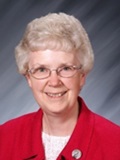
Sr. Anne Victory, MSN, RN
Leadership Team Member
Sisters of the Humility of Mary
Sr. Anne Victory is currently serving as a member of the Leadership Team of the Sisters of the Humility of Mary. She served as Director of Education for the Collaborative to End Human Trafficking, Cleveland, OH from 2010-2021 and is now a volunteer for the organization. A nurse by profession, she served for 32 years as a clinician, educator, and administrator in nursi ng and as Vice President for Mission and Director of Staff Education at St. Joseph Hospital, Lorain, OH, (now named Mercy Health and part of the Bon Secours Mercy Health System). Sr. Anne is one of the founding members of the Alliance to End Human Trafficking (formerly US Catholic Sisters Against Human Trafficking) and past president of the board. She has given presentations to a wide variety of audiences on the issue of human trafficking. One of the lenses through which Anne views human trafficking is as a public health issue--one that requires a collaborative, trauma-based approach involving multiple systems and service providers. She holds a BSN from St. John College, Cleveland, and a MS in Nursing from Ohio State University.
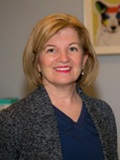
Kathleen Hackett, MSN, RN, SANE-P
Forensic Program Coordinator
UH Rainbow Babies & Children's Hospital
Kathleen Hackett has been a nurse for over 30 years with 20 years of emergency room experience, and is certified through the International Association of Forensic Nurses as a pediatric sexual assault nurse examiner (SANE-P). Kathleen is currently the Pediatric Forensic Program Coordinator for University Hospitals, Rainbow Babies & Children’s Hospital since its launch in 2010, in Cleveland, OH. Kathleen earned her Master of Science in Nursing (Forensic Track) at Cleveland State University in 2017. Kathleen provides ongoing education within her medical facility, and area undergraduate and graduate programs on such topics as sexual abuse/assault, human trafficking, non-fatal strangulation, and trauma-informed care, for medical students, physicians, and nurses. Kathleen also collaborates with community partners to provide better-quality care for pediatric victims of crime.
Tags
Federal Policies and Structural Inequities in American Indian Health
March 21, 2024
2:00 PM - 3:00 PM (ET)
Webinar Details
American Indians and Alaska Natives (AIAN) are the ‘unseen’ populations in the US. Americans know very little about the people Indigenous to North America, and it has been by design. The Health Professions education, research, and practice often rely on the asterisk as a placeholder in lieu of this missing information (Shotton, H., Lowe, S., & Waterman, S., 2023). This leaves the AIAN patient population with less than inadequate care and outcomes. Native faculty, staff, students, and patients can feel like they are ‘infiltrating’ institutions not designed for them or, in fact, designed in ways that constructively keep them out. The Future of Nursing reports were the seminal reports for the profession moving forward, with the first in 2010 being the most downloaded IOM (now NAM) report. The first Future of Nursing Report had two mentions of AIAN, and the current Report has less than one page focused on AIAN in a 500-page report. AIAN shares all the same issues, barriers, and systemic racism as other BIPOC groups, but as partially sovereign nations within the US, they have legal, geopolitical, and land-based issues none of the other groups have. To reach real solutions, there must be persistent, sustained, adequate, system-wide education on this very specific population for nursing and beyond.
Objectives:
- Recognize the impact of past and present federal legislation on the health and wellbeing of Indigenous communities.
- Describe the health disparities impacting American Indian and Alaska Native populations and their policy origins.
- Demonstrate best practices for allyship to Indigenous communities as a healthcare provider.
Note: Recording of the webinar will be available soon after the webinar airs. Visit AACN's On-Demand Webinars to watch.
Speakers
Speakers
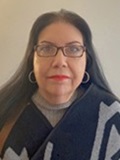
Margaret P. Moss, PhD, JD, RN, FAAN
Professor and Associate Dean for Nursing and Health Policy
Katherine R. & C. Walton Lillehei Chair in Nursing Leadership
University of Minnesota School of Nursing
Dr. Margaret Moss is an enrolled member of the Mandan, Hidatsa, and Arikara Nation in North Dakota. She is the first and only American Indian to hold both Nursing and Juris Doctorates. She has been a nurse for 35 years and an academic for 24 years across 4 universities including the University of Minnesota (twice) where she has returned as Professor in Nursing and Associate Dean of Nursing and Health Policy, Yale University, SUNY Buffalo and the University of British Columbia (UBC). Just prior she was at UBC 2018-2023, as a Professor, School of Nursing, Interim Associate Vice President Equity & Inclusion for the University, and Director of the UBC First Nations House of Learning, a strategic Indigenous leadership position under the Provost. She co-led the development and launch of the UBC Indigenous Strategic Plan (2020) one of the only comprehensive plans in No. America. Dr. Moss was named to the inaugural Forbes 50 over 50 Impact List, 2021. She was elected to the American Academy of Nursing’s Board 2021 and has been elected a member of the National Academy of Medicine (NAM) (2022). She sits on a Board of the National Academies of Sciences, Engineering and Medicine. She has contributed to 2 NAM consensus studies- Federal Policy to Advance Racial, Ethnic, and Tribal Health Equity (2022), and currently The Use of Race and Ethnicity in Biomedical Research. Dr. Moss wrote an award-winning text, American Indian Health and Nursing (2015) followed by Health Equity and Nursing (2020). In other experiences, Dr. Moss was a RWJF Health Policy Fellow and staffed the Senate Special Committee on Aging. She was a Fulbright Research Chair at McGill University on Indigenous Life Across the North American Context. She is asked to speak often on Indigenous, health, aging, diversity and policy issues with academics, health professionals and other groups nationally and internationally.
Tags
Reimagining When, Where, and How to Teach Palliative and End-of-Life Care
February 14, 2024
2:00 PM - 3:00 PM (ET)
Webinar Details
This interactive faculty webinar will advance and expand the definition and application of palliative care principles across teaching modalities. Palliative care concepts apply across the lifespan as well as across practice settings. Hear from two faculty leading a national initiative to support schools of nursing in advancing palliative care nursing education.
Objectives:
- 1. Differentiate hospice and palliative care concepts as they apply across an illness trajectory.
- 2. Expand understanding of the many opportunities to integrate palliative care concepts across multiple care settings.
- 3. Gain knowledge of available resources to assist faculty in teaching palliative care concepts.
Note: Recording of the webinar will be available soon after the webinar airs. Visit AACN's On-Demand Webinars to watch.
Speakers
Speakers
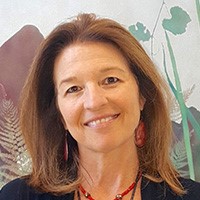
Andra Davis, PhD, MN, RN
Associate Professor
University of Portland
School of Nursing and Health Innovation
Dr. Andra Davis (she/her) is an Associate Professor with palliative care expertise (educational and instrument development). She is a co-investigator with the End-of-life Nursing Education Consortium (ELNEC) and leads a national effort to advance palliative care education in schools of nursing. With her colleague Dr. Lippe, she has developed instruments to evaluate student learning related to palliative care education. In addition to this work, she has participated in revision of national palliative care competency statements intended for use in schools of nursing. Dr. Davis has worked with an international team of researchers to explore provider experiences in caring for persons at the end of life in Thailand. Other work includes nurse-led symptom support for persons receiving cancer treatment and development of national family caregiver competencies within a national consortium of nurse educators.
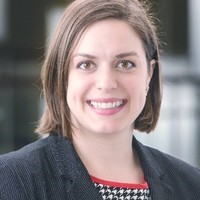
Megan Lippe, PhD, MSN, RN, ANEF, FAAN
Associate Professor
University of Texas Health San Antonio
School of Nursing
Dr. Megan Lippe is an Associate Professor with tenure and a palliative care expert. She is a national leader for palliative nursing care education with published works in areas related to palliative care education, simulation, interprofessional education, and social justice. She is a co-investigator of the End of Life Nursing Education Consortium (ELNEC) focused on advancing palliative care education in schools of nursing throughout the country. Dr. Lippe is the lead author for AACN-endorsed national palliative care competence statement revisions for undergraduate and graduate education (CARES and G-CARES, respectively) and the ELNEC Undergraduate/New Graduate curr iculum.
Tags
Anti-DEI Legislation - How to Engage to Protect the Health of All
December 13, 2023
2:00 PM - 3:00 PM (ET)
Webinar Details
Anti-DEI legislation continues to sweep across the nation. Learn different ways to get involved in advocating and engaging in the legislative process, from contacting legislators, writing Op-Eds, rallying a grassroots campaign, or joining the legislative efforts of professional organizations.
Objectives:
- Discuss legislative trends impacting nursing, education, and healthcare.
- List three actions you can take to inform legislators about the potential harm of the proposed anti-DEI legislation.
Note: Recording of the webinar will be available soon after the webinar airs. Visit AACN's On-Demand Webinars to watch.
Speakers
Speakers

Melissa McLaren, DNP, MBA, MSML, RN
Administrative Director Graduate Nursing
Interim Department Chair RN-BSN
Western Governors University
Dr. Melissa McLaren is an Administrative Director of Graduate Nursing and Interim Department Chair for RN-BSN at the Leavitt School of Health at Western Governors University. She serves on several committees and projects related to DEI work at the Leavitt School of Health. Dr. McLaren began her advocacy work over 13 years ago with the recognition that her very young child was transgender. What started as talking to teachers and school nurses at her child’s school grew to talking to educators and healthcare providers at a national level. Melissa and her family have engaged with lawmakers at the local and state level, as well as the Congressional LGBTQ Equality Caucus and the US Department of Health and Human Services in support of gender-affirming care and other LGBTQIA+ rights. They have spoken at state and national conferences to educate on the importance of family support when raising a transgender child. Dr. McLaren has partnered with organizations such as the Human Rights Campaign, Welcoming Schools, PFLAG, the ACLU, TransOhio, Equality Ohio, and many others to advocate for transgender youth.
Dr. McLaren currently serves on the Human Rights Campaign Parents for Transgender Equality National Council. She is a board officer for Equality Ohio and the Vice President for her county LGBTQIA+ organization. She is a member of the AACN DEI Leadership Network Communications Committee.

Ahnyel Burkes, DNP, RN-BC, NEA-BC
Executive Director - Louisiana State Nurses Association and Louisiana Nurses Foundation
Adjunct Nursing Faculty - Louisiana State University
Chief Executive Officer - Culture of Care LLC
Dr. Ahnyel Burkes is the Executive Director of the Louisiana State Nurses Association and Louisiana Nurses Foundation. She is a nurse entrepreneur and ser ves as the Chief Executive Officer at Culture of Care LLC. She is an Adjunct Nursing Faculty at Louisiana State University. She has served in numerous nursing leadership roles ranging from local, statewide, and national. Dr. Burkes received her Bachelor of Science in Nursing from Dillard University, a Master of Science in Nursing with a Healthcare Systems Management concentration from Loyola University in New Orleans, and a Doctor of Nursing Practice with a Nurse Executive Leadership concentration from Chamberlain University. Dr. Burkes is certified in Medical-Surgical Nursing and as an Advanced Nurse Executive. In her previous role as the Director of Health Policy and Advocacy for the Louisiana State Nurses Association she led the association’s legislative agenda. Dr. Burkes is the chair of the Louisiana Nursing Supply and Demand Council and Chair of the Louisiana Healthcare Workplace Violence Task Force.
One of her most notable contributions was spearheading Louisiana first Workplace Violence Law in 2022. Dr. Burkes completed the American Nurses Advocacy Institute in 2022. Dr. Burkes also led initiatives to make Louisiana the 12th state to enact Surgical Smoke Evacuation legislation. She is passionate about Health Policy and has served on various governmental boards, committees and taskforces focused on the healthcare workforce, healthy healthcare work environments and nursing practice.
Dr. Burkes has received numerous awards. She was inducted into the Louisiana Great 100 Nurses in 2018 and selected as a City Business 2021 Health Care Hero. In addition, she was awarded the Louisiana State Nightingale Registered Nurse of the Year Award in 2018, the American Nurses Credentialing Center’s 2019 Certified Nurse Award in Medical Surgical Nursing and the New Orleans District Nurses Association’s Legacy award in 2022. In 2021 she was recognized by Ochsner Health for Outstanding Community Achievement by a Nurse. She was recognized as a 40 under 40 honoree at her alma mater, Dillard University and recognized as the National inaugural 2022 Chamberlain University Emerging Caregiver. Dr. Burkes was listed on the 2022 and 2023 Becker’s Hospital Review Black Healthcare Leaders to Know. Dr. Burkes was acknowledged as a Health Impact Daisy Nurse Leader in 2023 for her dedication to advancing compassion through policy. Dr. Burkes is a lifetime member of the National Black Nurses Association, a member of the American Nurse Association (Louisiana Nurses Associat ion) and serves on the National Committee for Nursing Practice Standards as well as the National Committee on Workplace Violence. She serves on the National Black Nurses Association’s Health Policy Committee. She is also a member of Sigma Theta Tau International Honor Society of Nursing, and Delta Sigma Theta Sorority Inc.
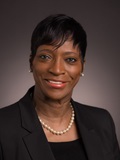
Teri A. Murray, PhD, PHNA-BC, RN, ANEF, FAAN
Professor
Dean Emerita
Inaugural Chief Diversity and Inclusion Officer
Trudy Busch Valentine School of Nursing
Saint Louis University
Dr. Teri Murray is a professor, dean emerita, and the inaugural chief diversity and inclusion officer at the Trudy Busch Valentine School of Nursing, Saint Louis University. She is also the project director for a Department of Health and Human Services, Health Resource and Service Administration, Nursing Workforce Diversity Grant. Dr. Murray works tirelessly to advance diversity in nursing education and the nursing workforce. She has been actively involved in workforce development and governmental affairs at the state and national levels. Her research and policy interests are focused on the social and structural determinants of health, the interconnections among the social and political environments, and health equity.
She is the Chair of the American Academy of Nursing’s Expert Panel on Health Equity. Dr. Murray is a Fellow of the American Academy of Nursing, the Academy of Nurse Educators, the Robert Wood Johnson Foundation Executive Nurse Fellows Program, a recipient of the Saint Louis American Foundation Excellence in Healthcare Award for Stellar Performance, the Exemplary Leadership Award by the National Coalition of 100 Black Women, and the recipient of the Distinguished Black Alumni and Woman of the Year Awards from Saint Louis University. Dr. Murray has garnered significant external funding, presented nationally, and has numerous publications.
Tags
Professional Communication through the Emotional and Social Intelligence Lens
December 08, 2022
2:00 PM - 3:00 PM (ET)
Hosted by the Organizational Leadership Network (OLN)
Webinar Details
Positive communication skills are a key component of personal and professional resilience, team performance, and patient outcomes. Yet these skills are not explicitly taught to healthcare professionals, they are often assumed to be present. Research is showing that developing communication skills through an emotional and social intelligence lens benefits all. This webinar will discuss related studies, the verbal escalation continuum and emotionally and socially intelligent communication tips to role-model and develop ourselves and our future nursing professionals.
Objectives:
- Participants will understand the history, definition, and significance of social and emotional intelligence.
- Participants will discuss the ROI and the case for health and wellness.
- Participants will experience an overview of the distinct competencies, application, and measurement of social and emotional intelligence.
Note: Recording of the webinar will be available soon after the webinar airs. Visit AACN's On-Demand Webinars to watch.
Speakers
Speakers

Tammy Cupit, PhD, RN-BC
Director, Nursing Research & Evidence-Based Practice
University of Texas Medical Branch
Dr. Tammy Cupit has been a registered nurse for over 25 years. She currently serves as an Associate Chief Wellness Officer for UTMB Health, directs a Nursing Science & Innovation division and has faculty appointments with the UTMB SON as well as the Graduate School of Biomedical Sciences. Her background is primarily in Behavioral Health nursing. She received her PhD from the UTMB School of Nursing and the Graduate School of Biomedical Sciences. She is a certified Instructor in Communication and Crisis De-escalation from the Crisis Prevention Institute. Dr. Cupit also holds certifications in Emotional and Social Intelligence Coaching from the Institute for Social and Emotional Intelligence and is a certified specialist in Restorative Practices from the National Educators for Restorative Practices (NEDRP). She has conducted local and multi-site social and behavioral research and has spoken regionally, nationally and internationally on her work. Dr. Cupit works with educators, students, healthcare teams and individuals to optimize well-being and joy and to improve professional relationships.
Tags
Nursing and Climate Change: Impact, Urgency, and Engagement
November 17, 2022
2:00 PM - 3:00 PM (ET)
Hosted by the Faculty Leadership Network (FLN)
Webinar Details
Many state, national, and global health agencies have highlighted the impacts of climate change. However, climate change content is still lacking in nursing curricula. This webinar helps faculty prepare students to care for patients impacted by climate change while building climate action and advocacy skills.
Objectives:
- Describe the impacts of climate change on health, contributing factors, and gaps in knowledge and practice.
- Discuss the urgency of integrating climate change content into nursing curricula, including barriers and necessary support.
- List resources for engaging nurses in climate action, including current initiatives and future directions for climate change education in nursing.
Note: Recording of the webinar will be available soon after the webinar airs. Visit AACN's On-Demand Webinars to watch.
Speakers
Speakers

Micki Englert, DNP, FNP-BC, CNE
Professor and Graduate Chair
Rasmussen University
Micki Englert is a Family Nurse Practitioner and Certified Nurse Educator. She completed her bachelor’s and master’s preparation at Thomas Jefferson University in Philadelphia, PA, and her DNP at the University of North Florida. Micki’s practice focuses on preventive medicine, nutrition, environmental health, and climate change. She is also passionate about nursing education and has completed a certificate in E-Learning Instructional Design and Oregon State University. Micki has been teaching nursing students for 10 years and is currently a professor and graduate program chair at Rasmussen University.

Kathryn P. Jackman-Murphy, EdD, MSN, RN, CHSE
Professor of Nursing
Naugatuck Valley Community College and Charter Oak State University
Kathy Murphy received her nursing degree from St. Mary’s Hospital School of Nursing, Associate Degree in Science from Mattatuck Community College, her BSN from Southern Connecticut State University, and her MSN and Doctorate in Education from the University of Hartford. The topic of her dissertation was the Confidence of New Nurse Graduates in the Application of Environmental Health in the Nursing Process.
Dr. Murphy has a vast experience in pediatric nursing, working in pediatrics at Yale-New Haven Hospital, Waterbury Hospital, and St. Mary’s Hospital in Ct, as well as a Public Health Nurse for the City of Waterbury. She has considerable experience in OB nursing having worked in the Family Birthing Center of Waterbury Hospital providing care to new families. She has taught OB clinical experiences for NVCC, Gateway Community College, Yale University and the University of Connecticut.
Dr. Murphy is a Professor of Nursing at Naugatuck Valley Community College (NVCC), an adjunct fac ulty at Charter Oak State College and the University of Hartford where she teaches courses on Environmental Health and Nursing and Climate Change.
Dr. Murphy has several publications on environmental health and climate change and has presented at many conferences on these topics. She is an active member of the Alliance of Nurses for Healthy Environments, co-chair of the Education Workgroup and a member of the Steering Committee. She is one of the editors of the second edition of ANHE’s free online text: Environmental Health and Nursing and has contributed several sections to this publication.

Jennifer J. Wasco, DNP, RN
Assistant Professor, Acute & Tertiary Care
Director of Professional Development & Continuing Education
University of Pittsburgh
Dr. Jennifer J. Wasco is an Assistant Professor of Nursing and the Director of Professional Development & Continuing Education at the University of Pittsburgh School of Nursing. Her scholarly agenda is bifurcated, focusing on environmental health and climate change and nurses' professional development and continuing education at all educational levels.
She has visited Capitol Hill to meet with Congressional leaders to educate them on climate change and human health. She was an invited guest lecturer for the 2019 UCLA Carbon Neutrality Faculty Course Curriculum Workshop and most recently was a panelist for the Oncology Nursing Society Advocacy Webinar discussing implementation science, climate change and the role of the oncology nurse along with congressional members, and leaders from ONS, American Cancer Society (ACS), and the National Cancer Institute (NCI).
Dr. Wasco has published manuscripts on curriculum, pedagogy, online learning, and teaching strategies and has authored a chapter in the 2nd edition of the Environmental Health in Nursing textbook published by the Alliance of Nurses for Healthy Environments. She is currently the primary investigator for a study to identify best practices for incorporating environmental and climate change topics into existing academic coursework while mapping to the newly released ANCC Essentials.
Through advanced quality education initiatives an d programming for nurses, Dr. Wasco hopes to improve the health of the world's people.

Jaclyn McPheeters, MSN, APRN, CCRN, FNP-BC
Family Nurse Practitioner
Integrative Health Group
Jaclyn McPheeters is an AACN board certified Family Nurse Practitioner. She graduated with her Master of Science in Nursing from Lewis University. She practiced as a registered nurse for 12 years in intensive care and is an AACN board certified critical care registered nurse. She previously was a full-time tenure track assistant professor of nursing and taught advanced medical-surgical nursing at Trinity Christian College in Palos Heights.
She is a member of Alliance of Nurses for Healthy Environments. For scholarship she works on her passion of climate change and environmental health advocacy works. In her current role, she directly cares for patients impacted by climate change and she both treats their conditions and helps them to achieve their most optimal state of health through preventative care.

Shanda Demorest, DNP, RN, PHN
Associate Director Climate Engagement & Education
Health Care Without Harm
Shanda Demorest, DNP, RN, PHN is the Associate Director for Climate Engagement and Education at Health Care Without Harm and Practice Greenhealth, where she supports decarbonization and climate-smart health care delivery throughout the sector. Dr. Demorest earned her Doctorate of Nursing Practice in Health Innovation and Leadership from the University of Minnesota, and she holds the LEED Green Associate credential through the U.S. Green Building Council. A cardiovascular nurse with horticultural training by background, Shanda is co-founder of the Nurses Climate Challenge: A national campaign to educate 50,000 health professionals about the health impacts of climate change. Dr. Demorest sits on the Global Climate Change Committee for the Alliance of Nurses for Heal thy Environments and is a former Executive Board member of Minnesota-based Health Professionals for a Healthy Climate. She is a co-PI in the development of CHANT: The Climate and Health Tool, which measures health professionals’ awareness and engagement with climate change globally. Dr. Demorest serves as an Affiliate Faculty member at the University of Minnesota School of Nursing and has published works on environmental sustainability in health care and the health impacts of climate change in local, state, and national journals.
Tags
Partnerships Between Academic Health Departments and Schools of Nursing
April 27, 2022
2:00 PM - 3:00 PM (ET)
Webinar Details & Objectives
This webinar will provide a brief overview of the concept of an Academic Health Department (ADH) and its roles and functions. This will be followed by presenters from AHDs and Schools of Nursing (SON) partnerships, describing how partnerships facilitate both nursing education and health department goals of improving the health of the public. Presenters will share examples of student experiences, challenges encountered and how to overcome them when working in partnership with an AHD, and possible ways to measure outcomes for student learning and health department goals. The AHD/SON partnership is an important mechanism for helping nursing students acquire public/population health knowledge and skills.
Objectives:
- Define Academic Health Department.
- Identify three benefits of SON partnerships with AHDs for the health department and nursing students.
- Describe challenges in implementing AHD/SON partnerships, and potential ways to overcome these.
- List three potential measures of outcomes of AHD/SON partnerships for the nursing students and AHD.
This webinar is funded by the Centers for Disease Control and Prevention’s Academic Partnerships to Improve Health.
Note: Recording of the webinar will be available soon after the webinar airs. Visit AACN's On-Demand Webinars to watch.
Speakers
Speakers
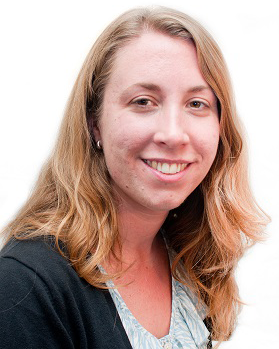
Kathleen Amos, MLIS
Director, Academic/Practice Linkages
Public Health Foundation
Kathleen Amos, MLIS, serves as the Director, Academic/Practice Linkages for the Public Health Foundation. In this role, she supports collaborative public health workforce development initiatives designed to strengthen connections between academia, public health practice, and healthcare. She coordinates the Council on Linkages Between Academia and Public Health Practice and its initiatives, including the Academic Health Department Learning Community and Core Competencies for Public Health Professionals, as well as other performance improvement efforts related to workforce development. Kathleen holds a Master’s degree in library and information studies, with post-graduate training in health sciences information services.
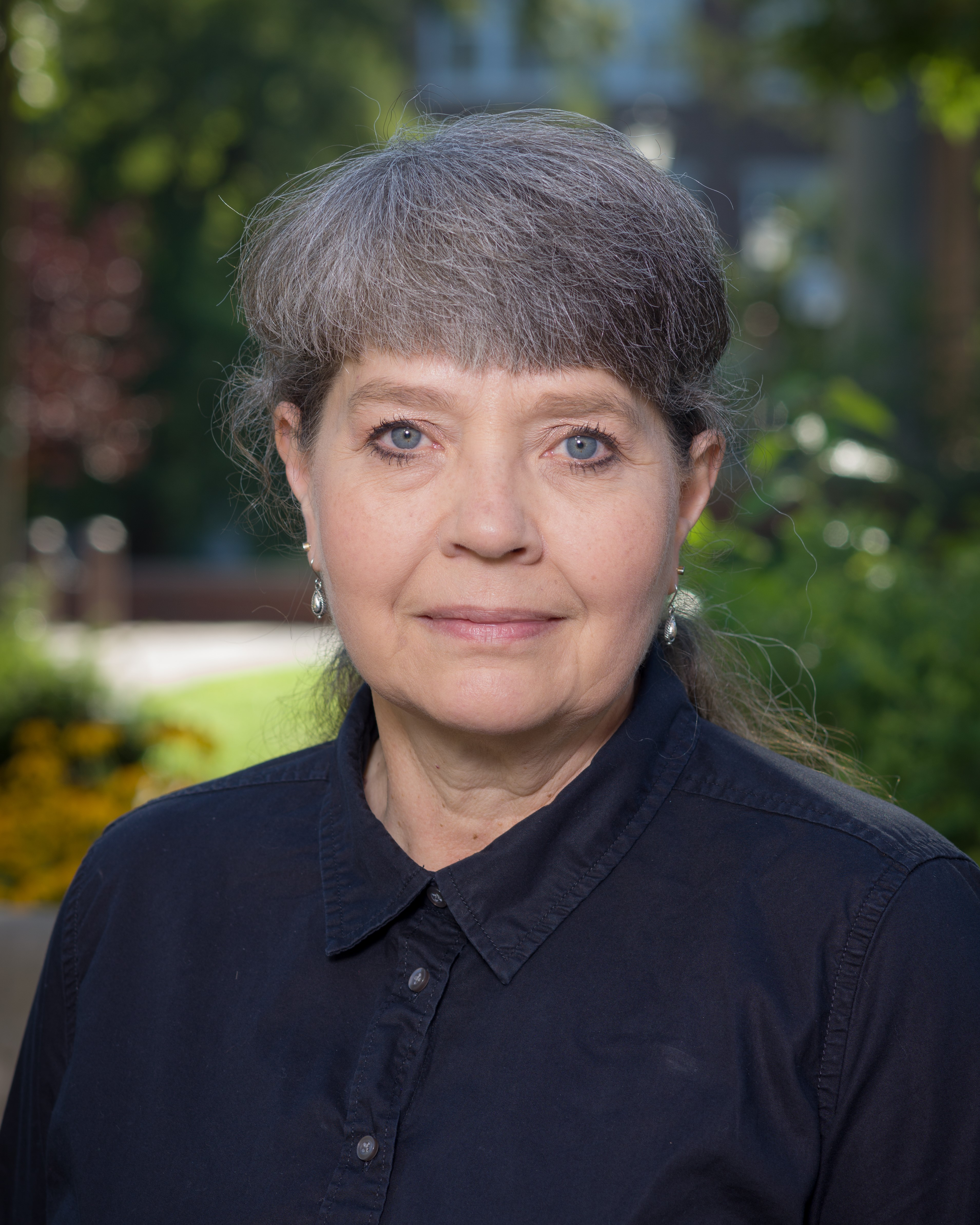
Nola Martz, EdD, MSN, RN
Assistant Professor of Nursing
Truman State University
Nola earned her BSN and MSN (with clinical specialty in Public Health) from the University of Missouri - Columbia (MU). Nola completed her Doctorate of Education with William Woods University where her dissertation research was on the impact of accreditation to public health funding in Missouri. Following her early nursing practice in NICU, rural community hospital and physician practice settings, she has spent the majority of her career in public health nursing in rural and suburban local public health agencies, and with the State health department in Missouri at programmatic and administrative levels. Nola joined the Truman State University (TSU) Nursing Department in Fall of 2021 as an Assistant Professor of Nursing. She currently teaches the NU485 – Rural and Public Health Nursing course and the NU250 Life Span Development course. She has also taught Pharmacology I and II for TSU. Prior to joining the TSU Nursing faculty, Nola taught for 6 years as adjunct instructor and full time as Visiting A ssistant Professor for the graduate Master in Public Health (MPH) online program at MU where she instructed Applied Epidemiology in Community Assessment, and Introduction to Research Methods courses. At MU, she additionally served as a Public Health Consultant for the MU Extension Community Health Team. Nola currently serves on the Missouri Public Health Association Board.
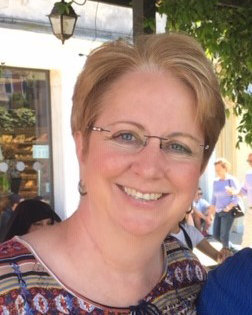
Joann Hoganson, MSN, RN
Director of Community Wellness
Kent County Health Department
Joann Hoganson is the Director of Community Wellness at the Kent County Health Department in Grand Rapids, MI. Prior to this, Joann, along with her husband and four kids, served in Brazil, South America as a missionary nurse for sixteen years. A primary focus of her efforts in Brazil was providing holistic and redemptive care to children and families living on the streets of Salvador, Bahia. Through this experience, she honed her administrative skills, learned the importance of community collaboration, and deepened her passion and commitment to bringing quality, holistic care to those who most need it. Additionally, she has worked as a Nursing Instructor at Grand Valley State University and Davenport University.
Joann is originally from Danbury, Connecticut, and received her Bachelor’s Degree from Cedarville University in Ohio, majoring in Biology and Chemistry. She then received a Master’s Degree in Nursing from Pace University in Pleasantville, NY, just outside of New York City. Joann has a deep commitment to the future generations of nurses and finds joy in passing her acquired knowledge on to future nurses who are diverse, well-prepared, innovative, and culturally competent. These are the people she hopes will carry the nursing torch after her retirement.
Moderator:
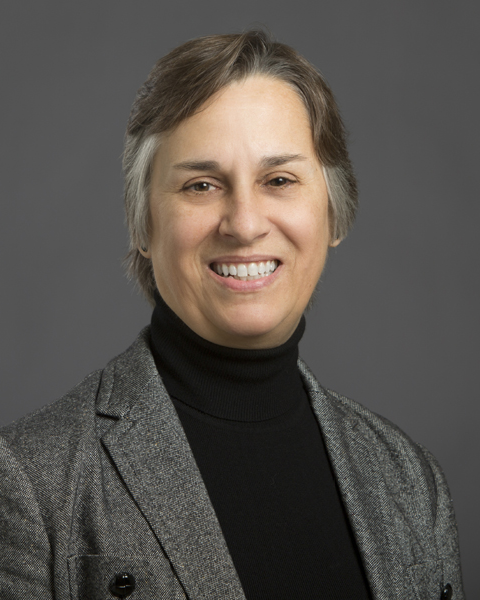
Susan M. Swinder, PhD, PHNA-BC, FAAN
Professor
Community, Systems and Mental Health Nursing
Rush University
Susan Swider is a Professor in the Department of Community, Systems and Mental Health Nursing at Rush University in Chicago. Dr. Swider has practiced in acute care, home health care and public health settings over the past thirty years. Her research has focused on program development and evaluation of community health workers, engaging urban communities in health promotion, and health policy to support health promotion efforts. She has taught public health nursing at the pre-licensure and graduate/specialty level at several universities, and co-directed 10 years of HRSA supported work to develop an online doctoral program in Advanced Public Health Nursing, ensuring that it met the Quad Council competencies for Public Health Nursing practice. She is a member of a number of public health and public health nursing organizations, and is a past president of the Association of Community Health Nursing Educators (ACHNE). In her role with ACHNE, she served on the Quad Council for Public Health Nursing organizations, and was a member of the Task Force that revised the Competencies for Public Health Nursing (2010-2012). In 2011, Dr. Swider was appointed by President Obama to the Advisory Group on Prevention, Health Promotion and Integrative and Public Health, a group designed to advise on the development and implementation of the National Prevention Strategy. She is also a fellow of the American Academy of Nursing and of the Institute of Medicine of Chicago. In 2016, she was appointed to serve on the Community Preventive Services Task Force of the Centers for Disease Control and Prevention.
Tags
Catalyzing Climate Change Content in Health Professions Education
April 22, 2022
2:00 PM - 3:00 PM (ET)
Webinar Details & Objectives
As a leading public health concern of the 21st century, climate change will continue to affect global population health. Health professionals and health professions educators have important and unique roles in proactively addressing climate change and its implications. To try and create a healthier, climate-resilient future, schools and programs that train health professions students should integrate climate change and its health effects into the curricula.
Webinar participants will hear models and resources that can be used to help institutions integrate climate-health content into health professions curricula.
Objectives
- Compare educational models and resources to train health professions students to prevent, mitigate, and respond to the health consequences of climate change
- Apply the new GCCHE Climate & Health Competencies for Health Professions Students
- Summarize “lessons learned” in the development and implementation of climate-health curricula
To Register
For AACN Members, click on the "Register" button on the left side of the screen. For Non-AACN members, click on the registration button below.
Non-AACN Member Registration Form
Note: Recording of the webinar will be available soon after the webinar airs. Visit AACN's On-Demand Webinars to watch.
Speakers
Speakers
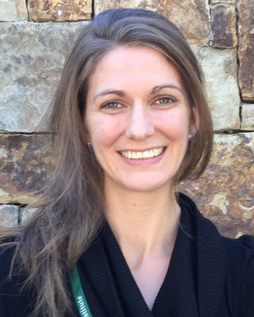
Cecilia Sorensen, MD
Director, Global Consortium on Climate and Health Education
Associate Professor, Department of Environmental Health Sciences, Mailman School of Public Health
Associate Professor, Department of Emergency Medicine
Columbia University
Cecilia Sorensen, MD is the Director of the Global Consortium on Climate and Health Education at Columbia University, Associate Professor of Emergency Medicine at Columbia Irving Medical Center and Associate Professor of Environmental Health Sciences at Mailman School of Public Health, Columbia University. Dr. Sorensen received her Doctor of Medicine from Drexel University College of Medicine and completed a four-year emergency medicine residency at Denver Health. Following residency training, she completed a 2-year fellowship in climate change and human health policy with the National Institute of Environmental Health Sciences (NIEHS). Her work focuses on the intersection of climate change and health and how policy solutions, clinical action and education can build resilience in vulnerable communities. She currently serves on the working group for the National Academy of Medicine’s Climate and Human Health Initiative. She was an author for the U.S. Fourth National Climate Assessment and serves as a technical advisor for the Lancet Climate and Health U.S. Policy Brief. She is the co-editor of the textbook Climate Change and Human Health: From Science to Practice.
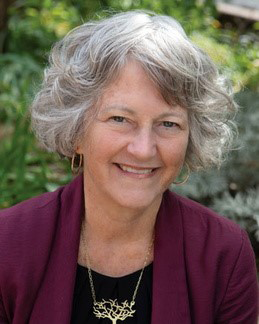
Teddie M. Potter, PhD, RN, FAAN, FNAP
Clinical Professor/Coordinator, Doctor of Nursing Practice in Health Innovation and Leadership
Director of Planetary Health; Pauline A. Vincent Chair of Public Health
Directorate, Katharine J. Densford International Center for Nursing Leadership
School of Nursing
University of Minnesota
Dr. Potter is deeply committed to climate change education including co-founding Health Professionals for a Healthy Climate, membership in the Alliance of Nurses for Healthy Environments, and membership on the American Academy of Nursing Environment and Public Health Expert Panel. She is a member of the Coordinating Committee of Columbia University’s Global Consortium on Climate and Health Education and a Fellow in the Institute on the Environment at the University of Minnesota. She chairs Clinicians for Planetary Health (C4PH) and is a member of the Steering Committee of the Planetary Health Alliance at Harvard.
At the University of Minnesota, Dr. Potter designed and co-teaches an interdisciplinary course titled “The Global Climate Challenge: Creating an Empowered Movement for Change”. In addition, she co-leads a Health Sciences initiative titled, “Climate Change and Health: An Interprofessional Response”. In 2019, Dr. Potter was appointed the first Director of Planetary Health for the School of Nursing.
In addition, Dr. Potter is Executive Editor for the Interdisciplinary Journal of Partnership Studies; a peer-reviewed, open-access, online journal promoting interdisciplinary collaboration as a solution for solving society’s grand challenges.

Dorothy Biberman, MPH, CPH
Director of Global Engagement and Executive Initiatives
Association of Schools and Programs of Public Health
Tags
“How To’s” for Building a Competency-Based Education Program
March 08, 2022
12:00 PM - 1:00 PM (ET)
Webinar Details
Dr. Gerry Altmiller, professor of nursing and director of The College of New Jersey Quality and Safety Innovation Center, discusses how to encourage faculty colleagues to utilize competency-based education strategies aligned with the 2021 Essentials. Topics include approaches for conducting effective and useful curriculum mapping and strategies for streamlining the process for colleagues. Dr. Altmiller will share examples for integrating sub-competencies appropriate to pre-licensure, RN-BSN, and graduate education into curricula, along with ideas to operationalize this new alignment on a small and large scale.
For the latest updates and resources on the new AACN's Essentials, visit www.aacnnursing.org/AACN-Essentials.
Speakers
Speakers
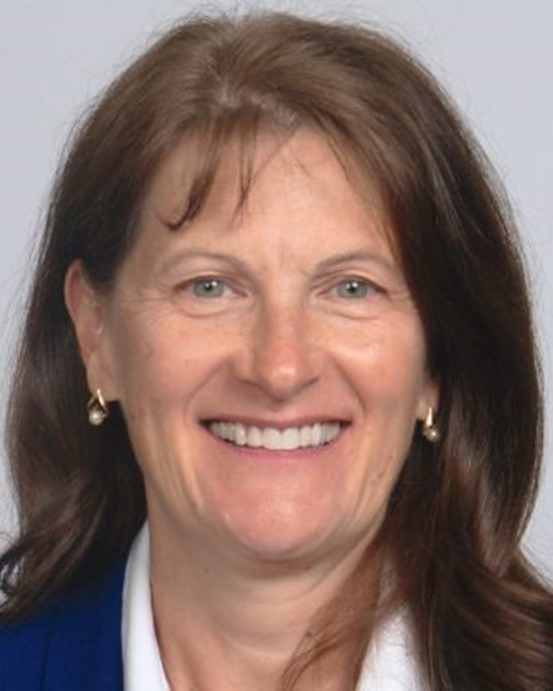
Gerry Altmiller,EdD, APRN, ACNS-BC, ANEF, FAAN
Professor of Nursing
The College of New Jersey
Gerry Altmiller, EdD, APRN, ACNS-BC, ANEF, FAAN, is a professor of nursing at The College of New Jersey, a clinical nurse specialist consultant for Einstein Healthcare Network in Philadelphia, Pennsylvania, and has pioneered the integration of quality and safety competencies in nursing education since 2006 when she served as a faculty leader for one of the 15 pilot schools for the Quality and Safety Education for Nurses (QSEN) Collaboration. She currently is a national consultant for QSEN and director of the Quality and Safety Innovation Center at The College of New Jersey. She leads the QSEN Academic Task Force, creating opportunities for its 110 members to network, share ideas, and conduct academic focused research. Dr. Altmiller authored the Teamwork and Communication Module of the National Council of State Boards of Nursing’s Transition to Practice program and in 2014 she received a Lindback Award for distinguished teaching. Her work on constructive feedback led to the development, testing, and dissemination of support tools for nurse educators and learning tools for students to view feedback as an opportunity. Dr. Altmiller was co-editor of a special QSEN issue of Nurse Educator and currently serves on the journal’s editorial board. Her research focuses on clinical evaluation, QSEN integration, and communication challenges in educational and practice environments.
Tags
Introduction to Competency-Based Education
September 28, 2021
1:00 PM - 2:15 PM (ET)
Webinar Details
Nursing educators Margaret Rauschenberger, Dr. Judeen Schulte, and Ann Van Eerden from Alverno College, lead a discussion on the evolution of competency-based education from a “journeyman” approach to an ability-oriented, outcome-based framework. This webinar relates contemporary concepts and definitions of competency-based education to nursing education as expressed in the 2021 Essentials.
For the latest updates and resources on the 2021Essentials, visit www.aacnnursing.org/AACN-Essentials.
Speakers
Speakers
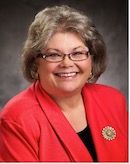
Margaret Rauschenberger, MSN, RN
Professor, Dean of Nursing Emerita, and Associate Dean
School of Adult Learning and New Initiatives
Alverno College
Peg Rauschenberger, MSN, RN, is an associate dean in the School of Adult Learning and New Initiatives in charge of health related programming, and the dean emerita of Alverno College's JoAnn McGrath School of Nursing and Health Professions. She has been consulting and lecturing since 1997, and has presented numerous workshops nationally and internationally on topics including ability-based education, nursing education, child and adolescent mental health care, nursing in corrections, conflict resolution, stress management and the effects of stress on health.
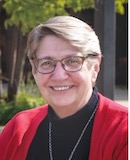
Judeen Schulte, PhD, RN
Professor
JoAnn McGrath School of Nursing and Health Professions
Alverno College
Judeen Schulte, PhD, OSF, is a professor of Nursing at Alverno College where she has taught since 1980. In addition to her nursing expertise, Schulte has given presentations on Alverno’s abilities-based curriculum across the country, as well as around the world. She has also served as a consultant to several universities here and abroad on performance assessment, student learning and abilities-based curricula.
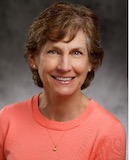
Ann Van Eerden, MSN, MS, RN
Associate Professor
JoAnn McGrath School of Nursing and Health Professions
Alverno College
Ann Van Eerden, MSN, MS, RN, CNE, NCSN, is an associate professor of nursing in the JoAnn McGrath School of Nursing and Health Profe ssions at Alverno College. She also serves as the director of both the Undergraduate Nursing Program and the Health Education Program. She has nearly 40 years of nursing experience and has been teaching since 2008.
Tags
Public Health: Nursing Education and the COVID-19 Pandemic
April 06, 2020
2:00 PM - 3:00 PM (ET)
Webinar Details & Objectives
For the past decade, leaders in health care have been talking about population health and its importance in improving the health of the nation. With the current COVID-19 pandemic, nurses response at the front lines, and the transition of nursing schools to distance learning, it is an opportunity to consider what we should be teaching nursing students to prepare them to work on the front lines in various capacities.
Objectives
- Describe key nursing roles in pandemic containment, control, and management
- Identify population health knowledge and skills useful in nursing practice across the continuum in the face of a pandemic
- Describe three skills nursing students need to demonstrate to be prepared for future pandemic/emergency preparedness situations
NOTE: Please view the webinar through the button below.
Webinar Resources
View for the other COVID-19 related webinars, listed below:
- Making Informed Decisions in Response to COVID-19
Recording Available - F.A.S.T: Academic Nurse Educators Respond to COVID-19
Recording Available - Bridging the Gap- Implementing Technology to Deliver Courses Online
Recording Available - A Call to Leadership: Navigating Uncharted Waters
Recording Available - Aligning Simulation within COVID-19 Contingenc
y Plans
Recording Available - COVID-19: Update from Nursing Leadership on the Front Lines
Recording Available - COVID-19: Promoting Resilience in Times of Crisis
Recording Available - Teaching Nursing Students How to Manage Crisis During COVID-19
Recording Available - COVID-19 Series: Techniques to Teach Assessment Online NOW!
Recording Available
These webinars are free and open to the public. Recordings of the webinars will be available soon after the webinars air.
Speakers
Panelists
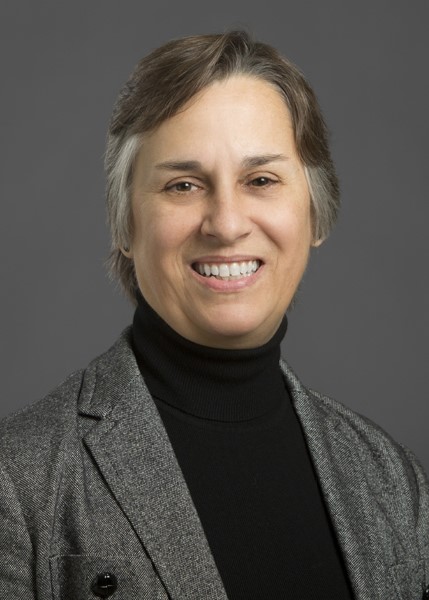 Susan Swider, PhD, PHNA-BC, FAAN
Susan Swider, PhD, PHNA-BC, FAANProfessor and Program Director
DNP tracks in Advanced Public Health Nursing and Transformative Leadership: Population Health
Rush University
Dr. Swider is a Professor in the Department of Community, Systems and Mental Health Nursing at Rush University in Chicago. Dr. Swider has practiced in acute care, home health care and public health settings over the past thirty years. Her research has focused on program development and evaluation of community health workers, engaging urban communities in health promotion, and health policy to support health promotion efforts. She has taught public health nursing at the pre-licensure and graduate/specialty levels at several universities and co-directed 10 years of HRSA-supported work to develop an online doctoral program in Advanced Public Health Nursing, ensuring that it met the Quad Council competencies for Public Health Nursing practice. She is a member of a number of public health and public health nursing organizations and is a past president of the Association of Community Health Nursing Educators (ACHNE). In her role with ACHNE, she served on the Quad Council for Public Health Nursing organizations and was a member of the Task Force that revised the Competencies for Public Health Nursing (2010-2012). In 2011, Dr. Swider was appointed by President Obama to the Advisory Group on Prevention, Health Promotion and Integrative and Public Health, a group designed to advise on the development and implementation of the National Prevention Strategy. She is a fellow of the American Academy of Nursing and of the Institute of Medicine of Chicago. In 2016, she was appointed to serve on the Community Preventive Services Task Force of the Centers for Disease Control and Prevention.
Tags
COVID-19: Breaking Through Denial to Action
April 02, 2020
12:00 PM - 12:30 PM (ET)
Webinar Details & Objectives
Working at the epicenter of the U.S. outbreak, Dr. Eileen Sullivan-Marx from New York University will present on her experience of using Kubler-Ross’ stages of bereavement during COVID-19 as part of the emergency preparedness and response. Her remarks will be followed by a 10-minute Q&A session facilitated by AACN Board Chair Susan Bakewell-Sachs.
NOTE: Please view the webinar through the button below.
Webinar Resources
Register for the other COVID-19 related webinars, listed below:
- Making Informed Decisions in Response to COVID-19
Recording Available - F.A.S.T: Academic Nurse Educators Respond to COVID-19
Recording Available - Bridging the Gap- Implementing Technology to Deliver Courses Online
Recording Available - A Call to Leadership: Navigating Uncharted Waters
Recording Available - Aligning Simulation within COVID-19 Contingency Plans
Recording Available - COVID-19: Update from Nursing Leadership on the Front Lines
Recording Available - Teaching Nursing Students How to Manage Crisis
During COVID-19
Recording Available - COVID-19 Series: Techniques to Teach Assessment Online NOW!
Watch April 3, 1:00 p.m. (ET) - Public Health: Nursing Education and the COVID-19 Pandemic
Watch April 6, 2:00 p.m. (ET)
These webinars are free and open to the public. Recordings of the webinars will be available soon after the webinars air.
Speakers
Panelists
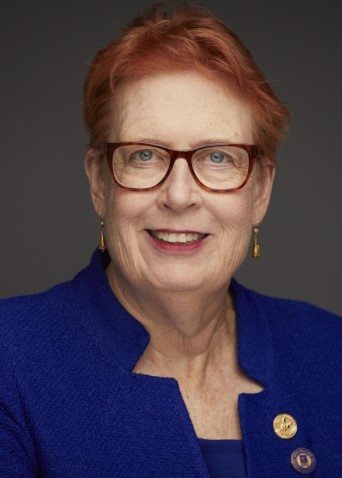 Eileen M. Sullivan-Marx, PhD, RN, FAAN
Eileen M. Sullivan-Marx, PhD, RN, FAANDean & Erline Perkins McGriff Professor
New York University
President, American Academy of Nursing
Dr. Sullivan-Marx is Dean of NYU Rory Meyers College of Nursing and the Erline Perkins McGriff Professor of Nursing. She is a renowned nursing leader, educator, and clinician known for her work on innovative approaches to primary care and payment methods for nurses, particularly through Medicaid and Medicare. She is also known for her work on developing healthcare policies in community-based settings.
Dr. Sullivan-Marx holds fellowships in the Gerontology Society of America and the New York Academy of Medicine. From 2010-12, she was an American Political Science Congressional Fellow and Senior Advisor to the Center for Medicare & Medicaid Services Office of Medicaid and Medicare Coordination where she worked to bring models of care to scale.
Dr. Sullivan-Marx was the first nurse to serve as the American Nurses Association representative to the American Medical Association’s Resource Based Relative Value Update Committee, where she was able to demonstrate that the work of nurse practitioners and physicians can be valued equally through various payment structures. She received the Hippensteel Founders Award for Excellence in Practice Award (2011), and the Doris Schwartz Gerontological Nursing Research Award (2013). She is recipient of the Distinguished Alumni of the University of Rochester School of Nursing and the Hospital of the University of Pennsylvania School of Nursing.
Dr. Sullivan-Marx assumed the presidency of the American Academy of Nursing in October 2019 where she is both a fellow (1997) and Edge Runner.
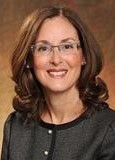 Susan Bakewell-Sachs, PhD, RN, FAAN
Susan Bakewell-Sachs, PhD, RN, FAANOregon Health & Science University
AACN Board Chair, 2020-2022
Dr. Bakewell-Sachs is Vice President for Nursing Affairs, Professor, and Dean at Oregon Health & Science University (OHSU) School of Nursing. Dr. Bakewell-Sachs has a clinical background as a pediatric nurse practitioner and is a nationally recognized scholar and clinical expert in the care of prematurely born infants, as well as a recognized expert in nursing education.
Dr. Bakewell-Sachs was a Robert Wood Johnson Foundation (RWJF) Executive Nurse Fellow, Cohort 2007, where her leadership development focused on strategic effectiveness and nursing education. Prior to joining OHSU, Dr. Bakewell-Sachs served as Dean and Interim Provost at The College of New Jersey, and also served as the Program Director for the New Jersey Nursing Initiative, an RWJF program aimed at addressing the nurse faculty shortage through new curriculum models, faculty development, and academic-practice partnerships.
Tags
Teaching Nursing Students How to Manage Crisis During COVID-19
March 30, 2020
3:00 PM - 4:00 PM (ET)
Webinar Details & Objectives
Many nursing faculty do not feel comfortable teaching students about disaster preparedness and response to public health emergencies. During an ongoing public health emergency the need to teach becomes critical. New graduates will be entering the profession during the current COVID-19 pandemic and must be prepared. This presentation will offer practical guidance and information on available resources.
NOTE: Please view the webinar through the button below.
Webinar Resources
Register for the other COVID-19 related webinars, listed below:
- Making Informed Decisions in Response to COVID-19
Recording Available - F.A.S.T: Academic Nurse Educators Respond to COVID-19
Recording Available - Bridging the Gap- Implementing Technology to Deliver Courses Online
Recording Available - A Call to Leadership: Navigating Uncharted Waters
Recording Available - Aligning Simulation within COVID-19 Contingency Plans
Recording Available - COVID-19: Update from Nursing Leadership on the Front Lines
Recording Available - Updated Considerations for COVID-19 Preparedness and Response in U.S. Schools of Nursing
Watch March 31, 12:00 p.m. (ET) - COVID-19: Breaking Through Denial to Action
Watch April 2, 12:00 p.m. (ET) - COVID-19 Series: Techniques to Teach Assessment Online NOW!
Watch April 3, 1:00 p.m. (ET) - Public Health: Nursing Education and the COVID-19 Pandemic
Watch April 6, 2:00 p.m. (ET)
These webinars are free and open to the public. Recordings of the webinars will be available soon after the webinars air.
Speakers
Panelists
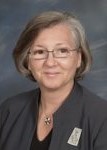 Roberta Lavin, PhD, FNP-BC, FAAN
Roberta Lavin, PhD, FNP-BC, FAANProfessor
University of Tennessee Knoxville
Roberta Lavin, is Professor and Executive Associate Dean of Academic Programs at the University of Tennessee Knoxville, College of Nursing. She spent twenty years as U.S. Public Health Service officer. She began her career at St. Elizabeths Hospital in Washington, DC on an acute psychiatric admission unit for those who were homeless. In her work she has coordinated mass migrations in Guatemala, managed health care in an immigration detention center in Batavia, New York before becoming the Chief of Field Operations of the Division of Immigration Health Services, worked for the Federal Bureau of Prisons in Tucson, Arizona, and spent a few months “tooling around” the South Pacific on a National Oceanic and Atmospheric Administration research vessel.
Dr. Lavin has served as the as the President and Secretary of the Federal Nurses Association, Director of the Society for the Advancement of Disaster Nursing, and the designated federal officer for the National Commission on Children and Disasters. She has received funding for her work in disaster research and program development from ANCC and Centers for Disease Control and Prevention, FEMA, and OPRE. She has been funded by HRSA and FIPSE for DNP program development and the inclusion of cultural competency.
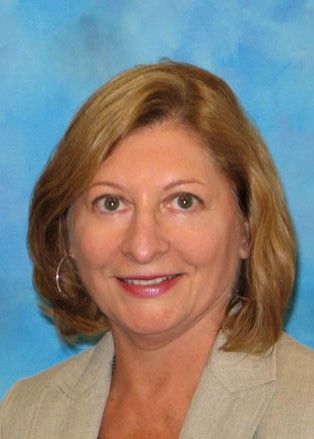 Joanne C. Langan, PhD, RN,CNE
Joanne C. Langan, PhD, RN,CNEProfessor
Coordinator, Disaster Preparedness & RN Return to Practice
Saint Louis University
Dr. Langan’s clinical expertise is in Adult Medical/Surgical and Community-based nursing. Her research and interests involve disaster preparedness, response and recovery and qualitative methods.
Tags
COVID-19: Update from Nursing Leadership on the Front Lines
March 25, 2020
2:00 PM - 3:00 PM (ET)
Webinar Details & Objectives
COVID-19 pandemic has instigated unprecedented challenge globally, nationally, and specifically to the nursing. Nursing excellence remains at the front lines of the pandemic, having a transformative impact on the health of the nation. This presentation provides an update on the global and national status of the COVID-19, and evidence based implications for nursing practice.
NOTE: Please view the webinar through the button below.
Webinar Resources
Register for the other COVID-19 related webinars, listed below:
- Making Informed Decisions in Response to COVID-19
Recording Available - F.A.S.T: Academic Nurse Educators Respond to COVID-19
Recording Available - Bridging the Gap- Implementing Technology to Deliver Courses Online
Recording Available - A Call to Leadership: Navigating Uncharted Waters
Recording Available - Aligning Simulation within COVID-19 Contingency Plans
Recording Available
These webinars are free and open to the public. Recordings of the webinars will be available soon after the webinars air.
Speakers
Panelists
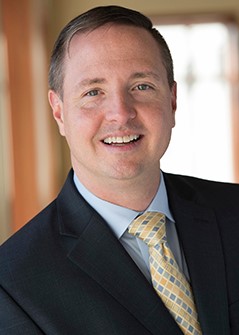 Jason E. Farley, PHD, MSN, MPH, RN, FAAN, ANP-BC, AACRN
Jason E. Farley, PHD, MSN, MPH, RN, FAAN, ANP-BC, AACRNProfessor
Director, PhD Program / REACH Initiative
Co-Director Clinical Core, Hopkins Center for AIDS Research
Past President, Association of Nurses in AIDS Care (ANAC)
Professor Jason Farley is a nurse practitioner for the Division of Infectious Diseases AIDS Service within the Johns Hopkins School of Medicine. His portfolio of research includes the development of multi-component interventions designed to improve HIV treatment and prevention across the cascade of care. Through innovative technological solutions, improvements and advancement of task-sharing approaches, or nurse and/or peer case management interventions, Dr. Farley’s work has a large clinical impact on care and prevention of HIV and tuberculosis.
Learn more on the Johns Hopkins University Website.
Tags
Aligning Simulation within COVID-19 Contingency Plans
March 24, 2020
1:00 PM - 2:00 PM (ET)
Webinar Details & Objectives
COVID-19 has been a disruptive force in most aspects of our lives. Many schools have abruptly moved from in person clinical to online simulation based learning and faculty are expected to be nimble in transitioning curricula to meaningful online learning. This session will discuss various strategies to meet the learning objectives of your courses. The presenters will discuss this as an opportunity to capture the impact of using simulation based learning in innovative ways while maximizing resource availability.
NOTE: Please watch the webinar through the button below. If you have trouble accessing the webinar, please call 202-868-4335.
Webinar Handouts
Register for the other COVID-19 related webinars, listed below:
- Making Informed Decisions in Response to COVID-19
Recording Available - F.A.S.T: Academic Nurse Educators Respond to COVID-19
Recording Available - Bridging the Gap- Implementing Technology to Deliver Courses Online
Recording Available - A Call to Leadership: Navigating Uncharted Waters
Recording Available - COVID-19: Update from Nursing Leadership on the Front Lines
March 25, 2020 - 2:00 p.m. (ET)
These webinars are free and open to the public. Recordings of the webinars will be available soon after the webinars air.
Speakers
Speakers
 Carol Fowler Durham
Carol Fowler DurhamUniversity of North Carolina at Chapel Hill
Carol F. Durham, EdD, RN, ANEF, FAAN, FSSH
Professor
Director, Interprofessional Education & Practice
Director, Education-Innovation-Simulation Learning Environment
University of North Carolina at Chapel Hill, School of Nursing
Dr. Fowler Durham, seamlessly integrates excellence in teaching with long experience in practice and scholarship to improve the ways faculties prepare the future nursing workforce. As a member of the RWJFs Quality and Safety Education for Nurses (QSEN) project, she developed simulation-based educational experiences that reflect cutting-edge pedagogy. Dr. Durham has made significant and sustained contributions in IPE and is a leader in preparing faculty to integrate quality and safety into their curriculum and their teaching.
Learn more on the University of North Carolina at Chapel Hill website.
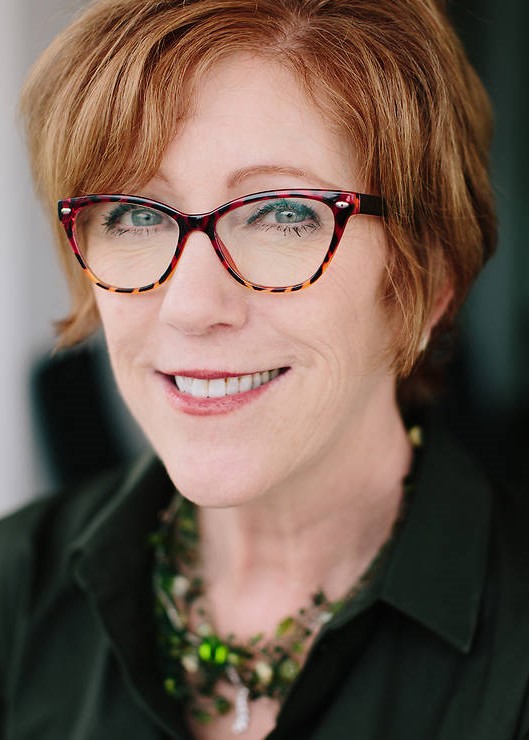 KT Waxman
KT WaxmanCalifornia Simulation Alliance
KT Waxman DNP, MBA, RN, CNL, CENP, CHSE, FSSH, FAONL, FAAN
Director of the California Simulation Alliance
Immediate Past President for the Society for Simulation in Healthcare
Dr. KT Waxman is a nurse leader with over 30 years of experience in health care and corporate settings. She is a tenured Associate Professor at the University of San Francisco, and is the Director of the Executive Leadership DNP program. She is the Director of the California Simulation Alliance (CSA) at HealthImpact. An internationally known speaker and author, Waxman is also a past president of the Association of California Nurse Leaders (ACNL) and past board member, serving as Treasurer, for the American Organization of Nurse Executives (AONE). She is active in numerous committees for the Society for Simulation in Healthcare (SSH) and serves on the Finance Committee for the International Nursing Association for Clinical Simulation and Learning (INACSL).
Learn more on the University of San Francisco website.
Tags
F.A.S.T: Academic Nurse Educators Respond to COVID-19
March 16, 2020
2:00 PM - 3:00 PM (ET)
Webinar Details & Objectives
In this time of COVID-19, Academic Nurse Educators are being asked to quickly convert on-campus course sessions to online and consider alternative clinical placements to support course, clinical and program outcomes. Using the acronym FAST (Faculty, Alternate Clinical, Students, Teaching with Technology), attendees will receive strategies to maintain excellence in their programs while supporting their academic communities.
NOTE: Please view the webinar through the button below.
Webinar Resources
Register for the other COVID-19 related webinars, listed below:
- Making Informed Decisions in Response to COVID-19
Recording Available - Bridging the Gap- Implementing Technology to Deliver Course Online
March 18, 2020 at 1:00 pm (ET)
These webinars are free and open to the public. Recordings of the webinars will be available soon after the webinars air.
Speakers
Speakers
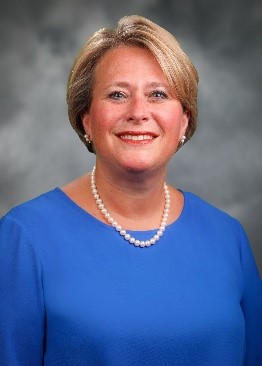 Valerie Howard, EdD, MSN, RN
Valerie Howard, EdD, MSN, RNAssociate Dean for Academic Affairs
Duke University School of Nursing
Valerie Howard, EdD, MSN, RN, joined Duke in 2018 as the Associate Dean for Academic Affairs in the School of Nursing. Dr. Howard has over 24 years of experience in higher education, with the past fourteen years dedicated to researching, developing, implementing and evaluating innovative teaching methods and leadership and team building experiences across the curriculum. While at Duke, she is responsible for leading academic programs, supporting students and program evaluation efforts from admission through graduation.
Dr. Howard served as Dean at Robert Morris University’s (RMU) School of Nursing and Health Sciences (SNHS) in Pittsburgh, PA, where she was also a University Professor of Nursing. Prior to position as Dean, she served RMU in various leadership roles including Director of Development and Assistant Dean for External Affairs, Academic Department Head and Academic Integrity Council Chair.
Dr. Howard created the Society for Simulation in Healthcare accredited RMU Regional Research and Innovation in Simulation Education (RISE) Center and served as its founding director. She was president of the International Nursing Association of Clinical Simulation and Learning (INACSL) from 2011 to 2013 and received the INACSL Excellence Award in Research in 2010.
In alignment with the IOM Recommendations, Dr. Howard implemented, evaluated and sustained the Dedicated Education Unit Model for educating nurses in the Pittsburgh region, and she is currently working with the PA Action Coalition to provide board training in support of the national Nurses on Boards initiatives.
Dr. Howard earned her EdD in Higher Education Administration and MSN (Nursing Education) from the University of Pittsburgh and her BSN from Indiana University of Pennsylvania
Tags
Making Informed Decisions in Response to COVID-19
March 13, 2020
11:00 AM - 12:00 PM (ET)
Webinar Details & Objectives
As the academic nursing community prepares to address the Coronavirus outbreak, AACN has consulted with experts is disaster planning on how nursing schools can maintain quality programs while keeping students, faculty, and staff safe. Please join us for the first webinar in our new series on COVID-19 featuring one of the nation’s leading experts on overcoming public health threats. The discussion will center on AACN’s newly released guidelines for schools to consider related to emergency preparedness and response.
NOTE: Please view the webinar through the button below.
Webinar Resources
Register for the other COVID-19 related webinars, listed below:
- F.A.S.T: Academic Nurse Educators Respond to COVID-19
March 16, 2020 at 2:00 pm (ET) - Bridging the Gap- Implementing Technology to Deliver Course Online
March 18, 2020 at 1:00 pm (ET)
These webinars are free and open to the public. Recordings of the webinars will be available soon after the webinars air.
Speakers
Speakers
 Tener Goodwin Veenema, PhD, MPH, MS, RN
Tener Goodwin Veenema, PhD, MPH, MS, RNJohns Hopkins University
Tener Goodwin Veenema is an internationally recognized expert in disaster nursing and public health emergency preparedness. As president and chief executive officer of the Tener Consulting Group, LLC, Dr. Veenema served as senior consultant to the U.S. Government, including the departments of Health and Human Services, Homeland Security, and Veterans Affairs, the Administration for Children and Families, and most recently the Federal Emergency Management Agency (FEMA). Her decision-support software and information technology applications for disaster response have been presented at conferences around the globe. Her scholarship includes the leading international text in the field, Disaster Nursing: Disaster Nursing and Emergency Preparedness for Chemical, Biological and Radiological Terrorism and Other Hazards (Springer, 3rd Edition, 2013), and two nationally award-winning Disaster e-Learning Courses, Red Cross ReadyRN Disaster and Emergency Preparedness for Health Services (American Red Cross, 2007) and ReadyRN (Elsevier, MC Strategies, 2008).
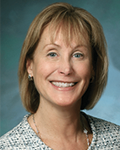 Deborah Trautman, PhD, RN, FAAN
Deborah Trautman, PhD, RN, FAANAmerican Association of Colleges of Nursing
Deborah Trautman, PhD, RN, FAAN, assumed the role of President and Chief Executive Officer of the American Association of Colleges of Nursing (AACN) in June 2014. Formerly the Executive Director of the Center for Health Policy and Healthcare Transformation at Johns Hopkins Hospital, Dr. Trautman has held clinical and administrative leadership positions at the University of Pittsburgh Medical Center and the Johns Hopkins Medical Instituti ons. She also served as the Vice President of Patient Care Services for Howard County General Hospital and as Director of Nursing for Emergency Medicine at the Johns Hopkins Hospital. She has held a joint appointment at the Johns Hopkins University School of Nursing.
